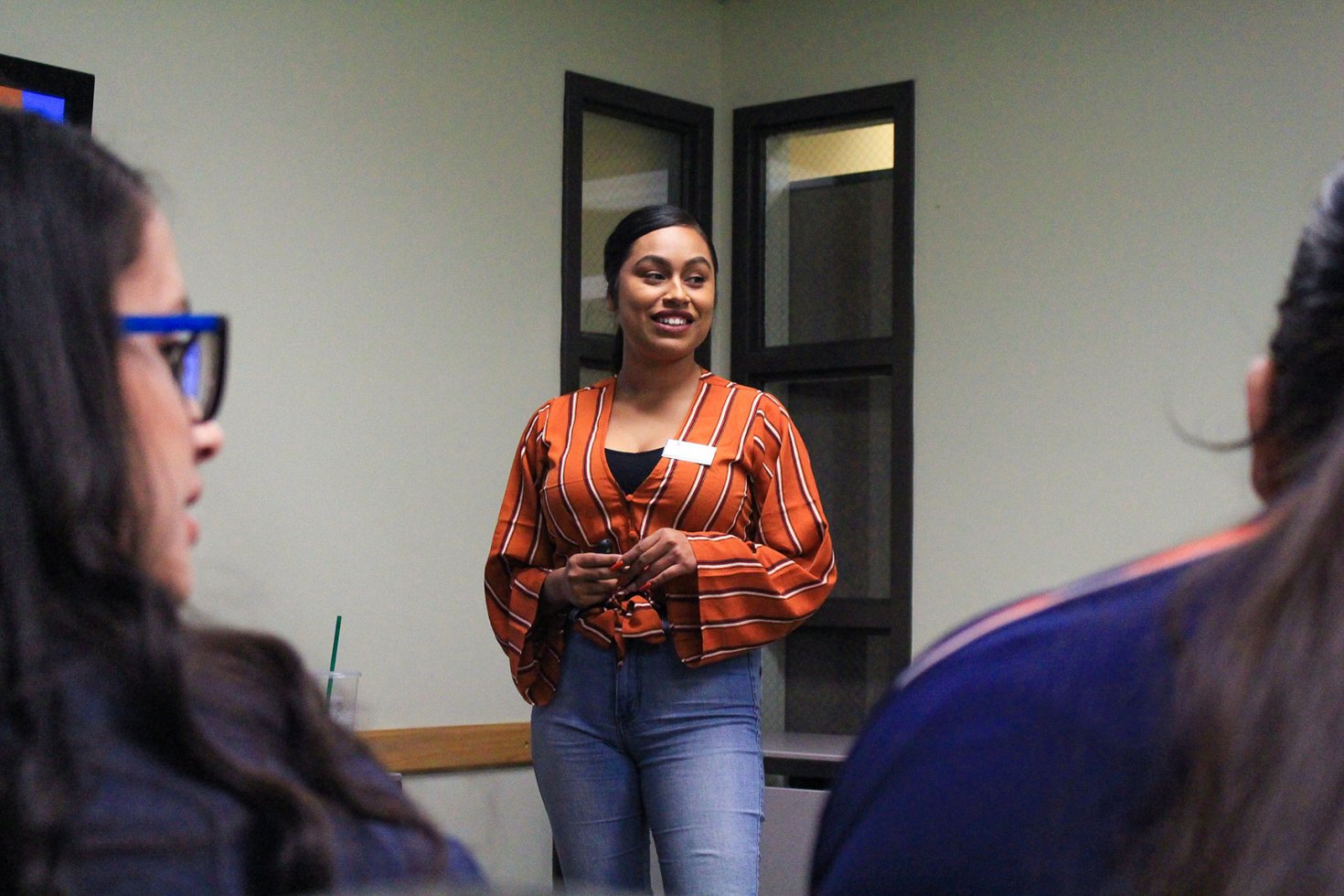
The Student Leadership Institute hosted a public workshop addressing the stigma surrounding disabilities and how to combat them in order to cultivate an inclusive community on campus last Friday at the Titan Student Union.
Leading the discussion was Mireya Duarte, a Disabilities Support Services graduate assistant.
“Language reflects how we view disability in society. Language is very powerful,” Duarte said. “We have moved from the medical model to the social model, and it’s been a long way coming. There’s still a lot of work that needs to be improved.”
The medical model led to stereotyping and defining people by a condition or their limitations as it focuses on individuals, according to Art Beyond Sight, a nonprofit focused on bringing art and cultural experiences to people with disabilities.
The social model promotes the notion that while physical, intellectual or psychological limitations cause individual impairments, “these do not lead to disability unless society fails to take (the impairments) into account and include people regardless of their individual differences,” according to the nonprofit.
During the discussion, Duarte emphasized the importance of “people-first language,” a social phenomenon addressing disabilities as circumstances and not labels.
“Instead of saying disabled or handicapped, we say, ‘person with a disability,’” Duarte said.”It’s the person first, not the disability.”
A sensitivity training video was shown during the workshop to demonstrate the importance of people-first language.
“Some people don’t know what they don’t know, and they can say something that can offend somebody else, and if you hear that, you can (address it). You don’t have to be mean,” Duarte said. “You can just take that moment to educate someone on how to be more inclusive in their language.”
Some of the ways individuals are disabled by society are through prejudice, labeling, lack of familial support or familial overprotection, and not being able to acquire information in formats which are accessible to them, according to the Foundation for People with Learning Disabilities, a division of the British Mental Health Foundation.
Heidi Elmer, coordinator of the Community Service and Leadership Program at Cal State Fullerton, explained that the Student Leadership Institute often works in collaboration with other programs on campus to discuss the best methods of approach regarding community development.
“I don’t want to have a whole session on the word ‘inclusivity,’ I want to talk about how we can apply this,” Elmer said. “We make sure that whatever we’re doing actually meets a need, and not what we think the need is but what the community needs.”
If you or a student you know may benefit from the resources offered by the Disability Support Services, visit their web page at http://www.fullerton.edu/dss/ or the department office at Gordon Hall 101, open Monday through Friday from 8 a.m. to 5 p.m.
“Disabilities can be invisible — short-term, long-term, in the fluidity of that, it goes both ways. If a student hasn’t accepted that part of their identity, they may not feel comfortable disclosing. If you give them that information beforehand, they have it and they know,” Duarte said.
